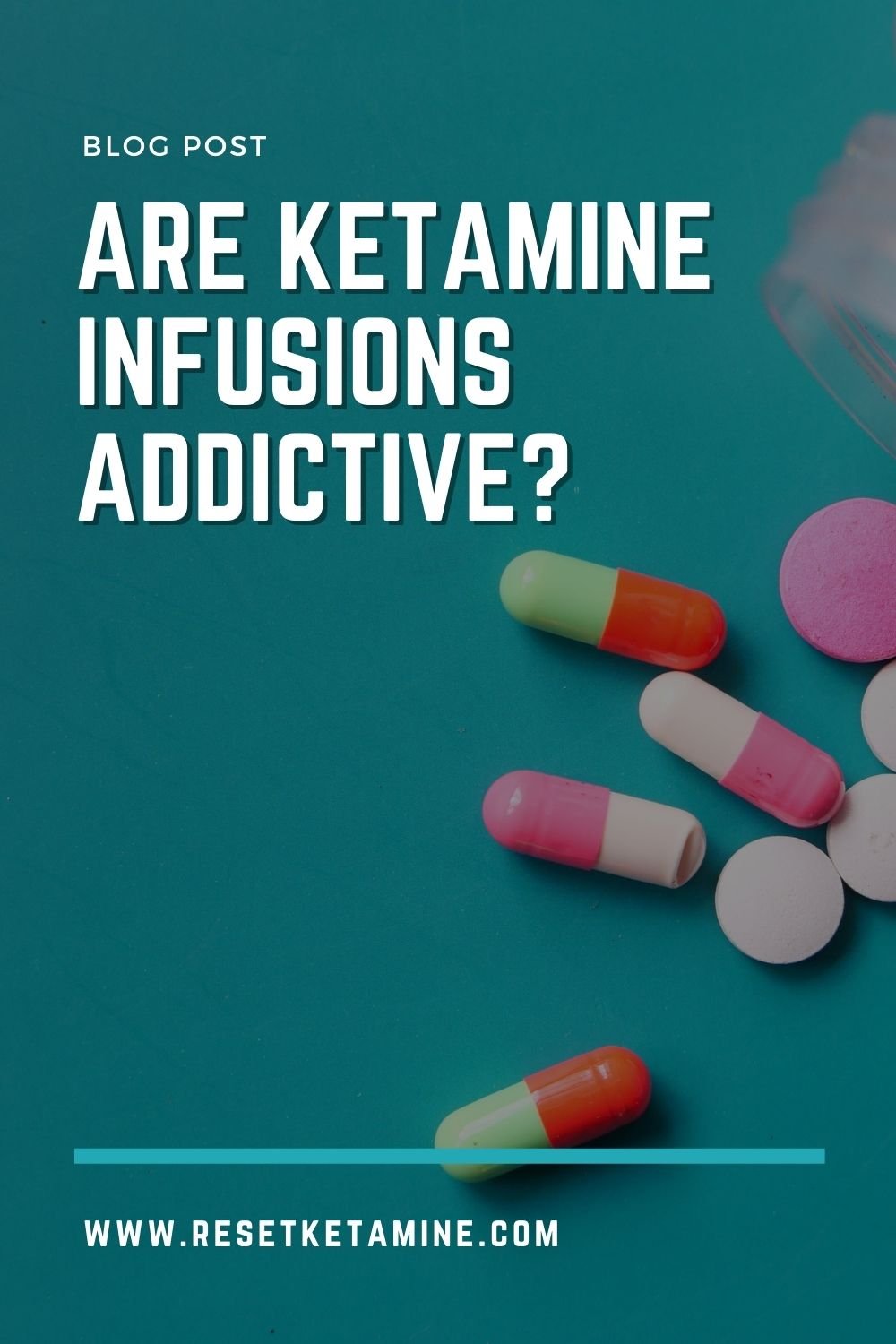Let’s address the elephant in the room because we get asked this question frequently. Despite the growing scientific data and transformational stories of patients who undergo ketamine treatment, inevitably we get asked, "Is ketamine addictive?"
Simply put, “yes” ketamine has the potential but it is highly unlikely in the setting of professionally monitored infusions. The answer is quite nuanced so let’s explain further over four points:
1. Ketamine’s notorious past and historical use. This question often stems from ketamine’s colorful past as a street drug, aka “Special K,” “Vitamin K,” or simply “K.” When people use drugs recreationally (i.e unsupervised, high doses, frequent dosing, self-administered, unmonitored) yes, they can become addicted to it. That being said, ketamine is the most commonly used medicine globally to safely provide sedation for both adults and children to perform medical procedures and operations. (Learn more on our post: 5 Facts To Know About Ketamine’s Past).
Ketamine is an anesthetic used to sedate both people and animals before surgery. It’s also a notorious street drug, abused by clubgoers seeking a trancelike, hallucinatory high.
2. Ketamine compared to other substances and medications. Have you ever smoked a cigarette in your life? Have you ever had an alcoholic beverage? Are these substances addictive? Yes, they can be and the potential is there. But not everyone who tries these substances will become addicted to them. Similarly, the addictive potential is there for ketamine but not everyone who tried ketamine will become addicted.
“It isn’t the drug that causes the harmful behavior—it’s the environment. An isolated rat will almost always become a junkie. A rat with a good life almost never will, no matter how many drugs you make available to him. As Bruce put it: he was realizing that addiction isn’t a disease. Addiction is an adaptation. It’s not you—it’s the cage you live in.”
Furthermore, check out this graph below:
Ketamine is in the low dependence potential, compared to both nicotine and alcohol. Ketamine compared with other medications (like morphine and other opioids) used in hospitals has a much lower potential for dependency. So not only is it used to help patients get needed procedures done, like a shoulder reduction, it has a lower risk of dependency compared to morphine! This is also being field tested in the EMS world, and some paramedics are giving IV ketamine instead of IV opioids for pain.
People can get addicted to all sorts of substances. Any substance that alters an individual’s five senses has the potential for abuse.
3. Ketamine, addiction, and monitored treatment. Ketamine infusions start with low doses of ketamine over a prolonged time period. Slowly infused low doses of ketamine avoid the sudden dose of ketamine that recreational users may experience which can create a potentially addictive high.
When you are given this transformational medication in a monitored and safe environment over the watchful eye of a healthcare provider, the addictive potential drops further. Here at Reset Ketamine, we use ketamine to catalyze your transformation. Our goal is to help get you to a point where you need less and less infusions as you heal.
The involvement of experienced providers in the monitoring of patients receiving IV ketamine is important because of the potential need for additional support of the patient while they experience non-ordinary states of consciousness.
4. Comparing risk vs benefits in the age of modern medicine. Finally, you have to compare the risk versus benefit of undergoing ketamine infusions. There is risk (like any medication), but you need to compare it to the benefit one could gain. Take for example chemotherapy, there is a risk of damage to the body, because these powerful drugs not only kill cancer cells (benefit) but will also kill healthy cells (risk). Proper dosing and monitoring further lowers the risk, and increases the overall benefit of receiving the chemotherapy! Sure, there are risks involved when receiving ketamine infusions, but then there is also the benefit of improved mood and transforming your life!
There is some consideration of using ketamine to treat substance abuse issues, however it’s important to note though that some recommendations suggest it may not be safe for people who have a history of substance abuse. Many clinical trials have excluded people with substance use issues.
We hope this is helpful in answering this question. Let us know what you think and contact us if you have further questions!
















Maximize your ketamine therapy success by avoiding these 10 common mistakes that can derail your healing journey. From proper preparation and intention setting to integration and choosing the right clinic, learn what to do instead of what not to do for transformative results.